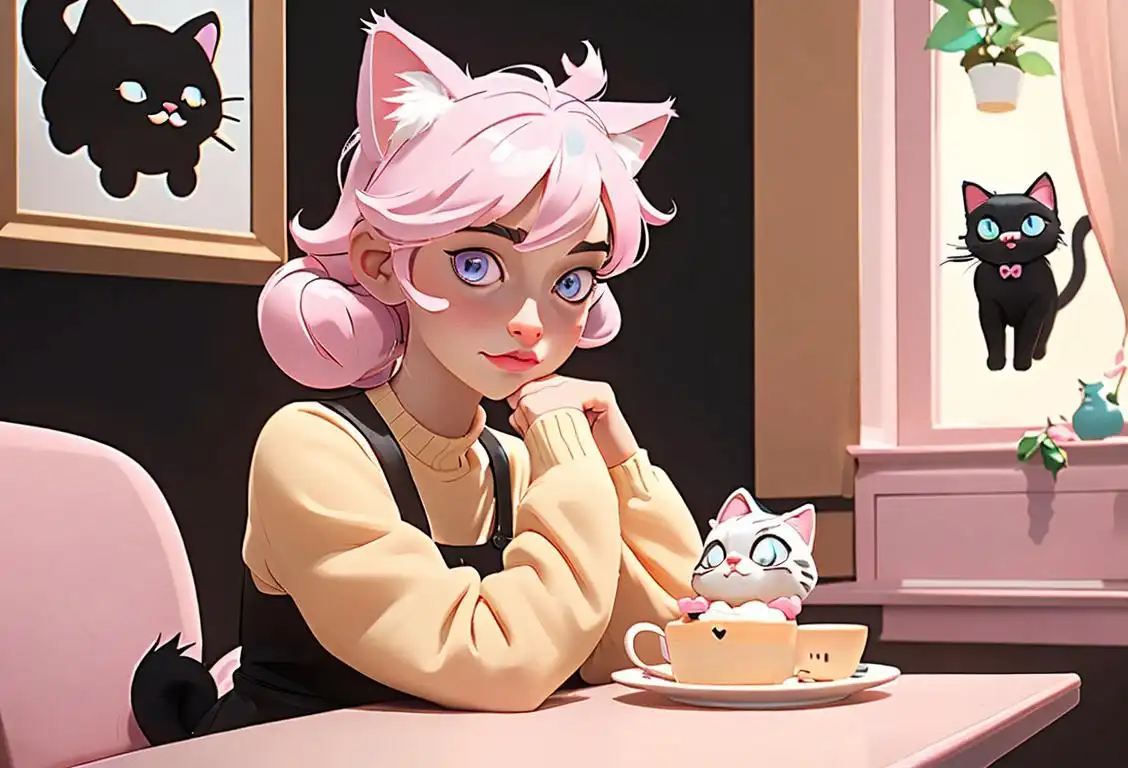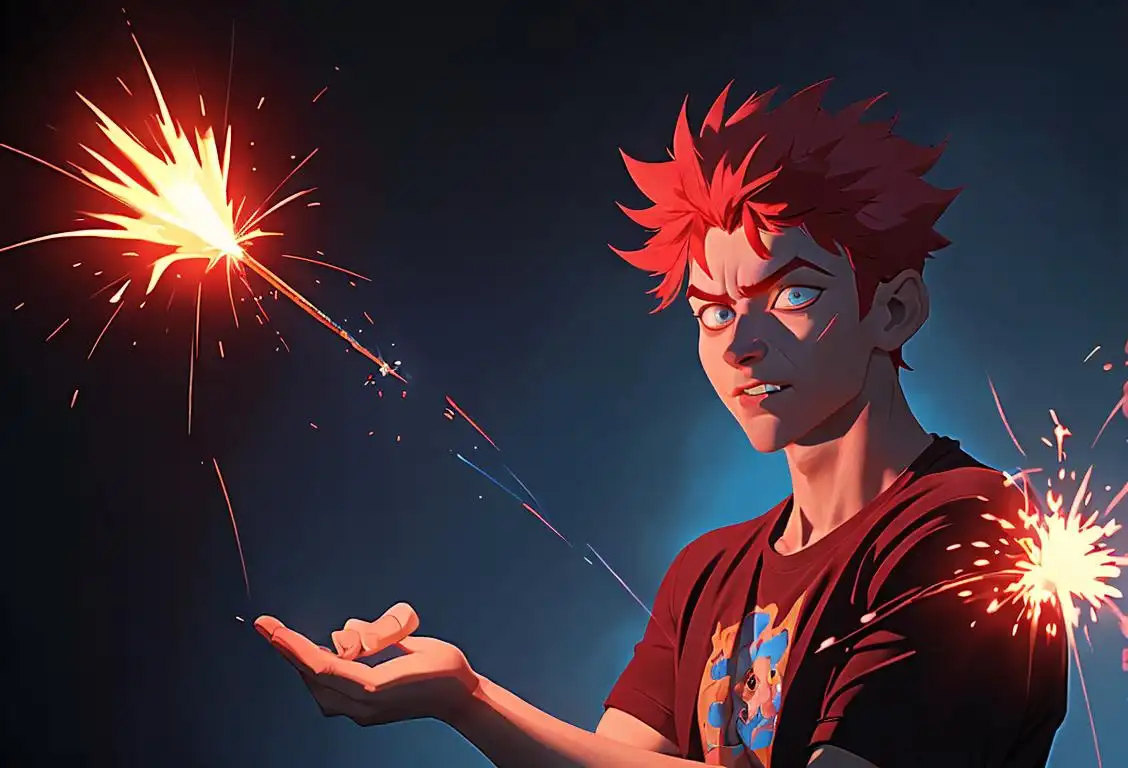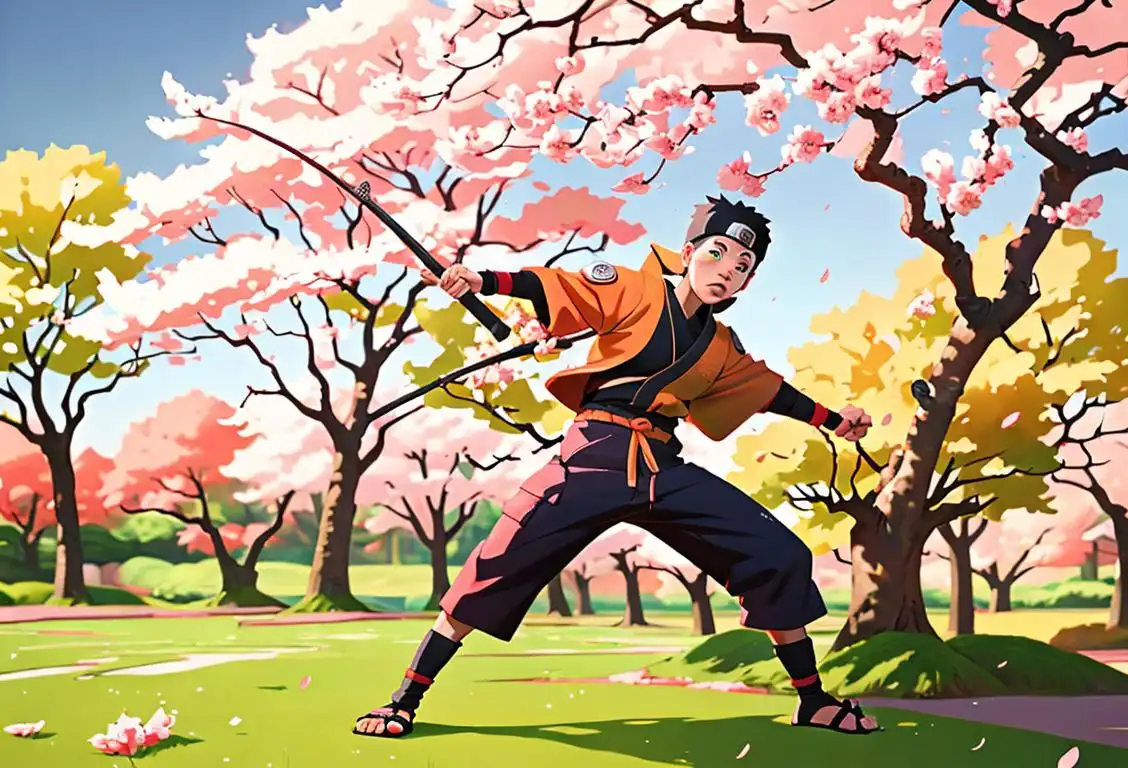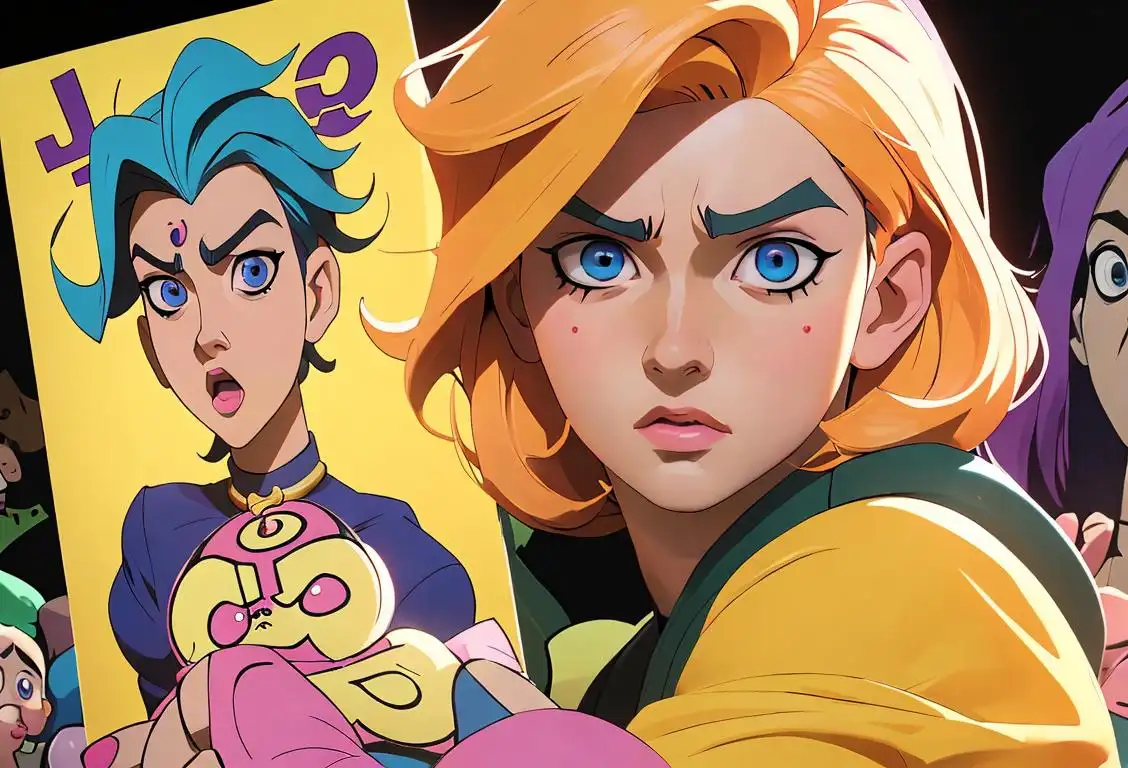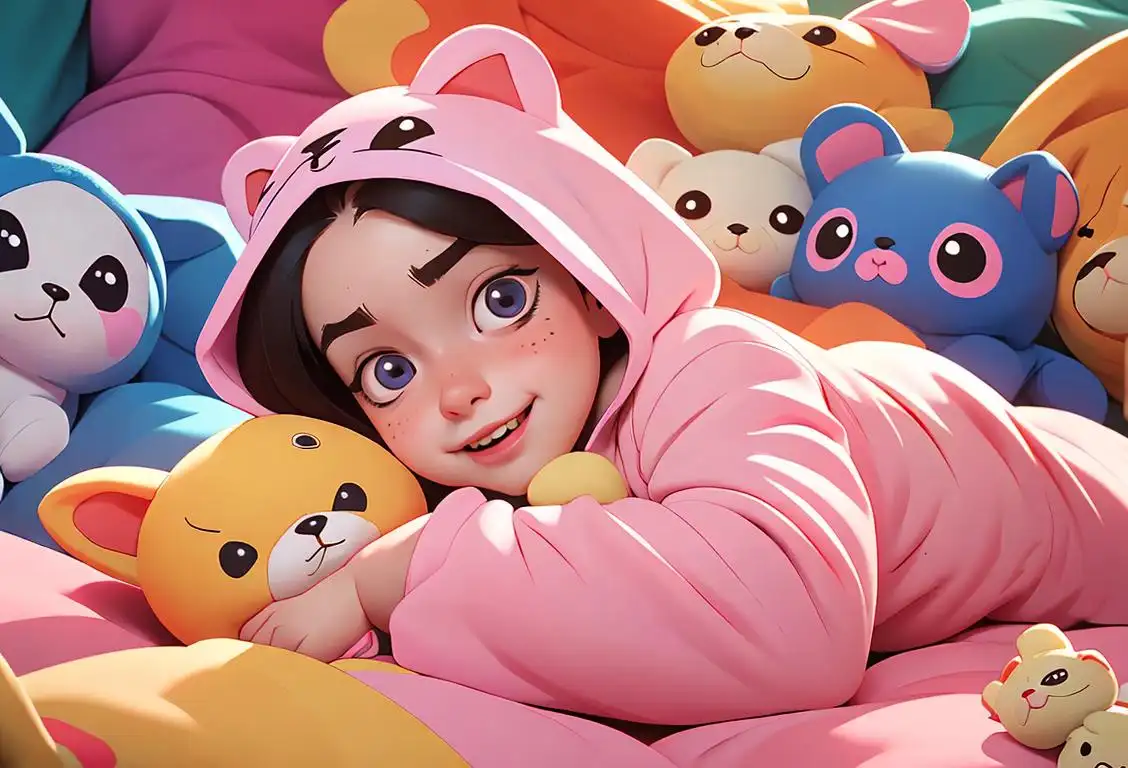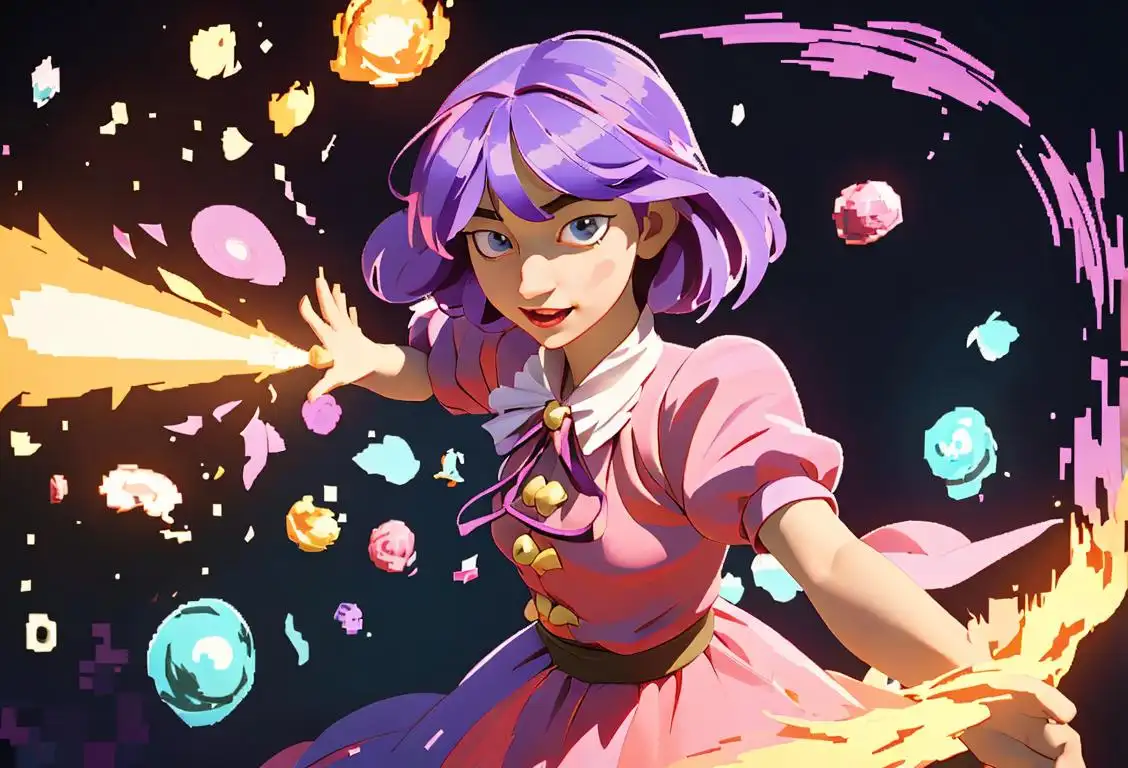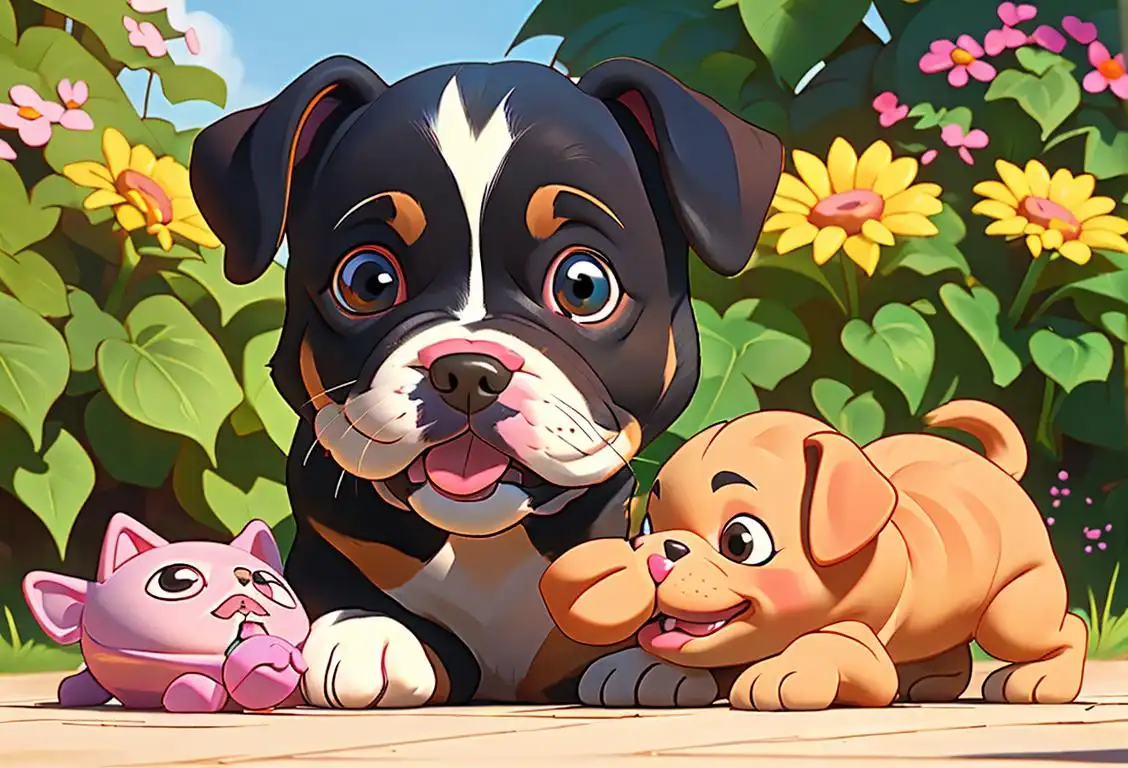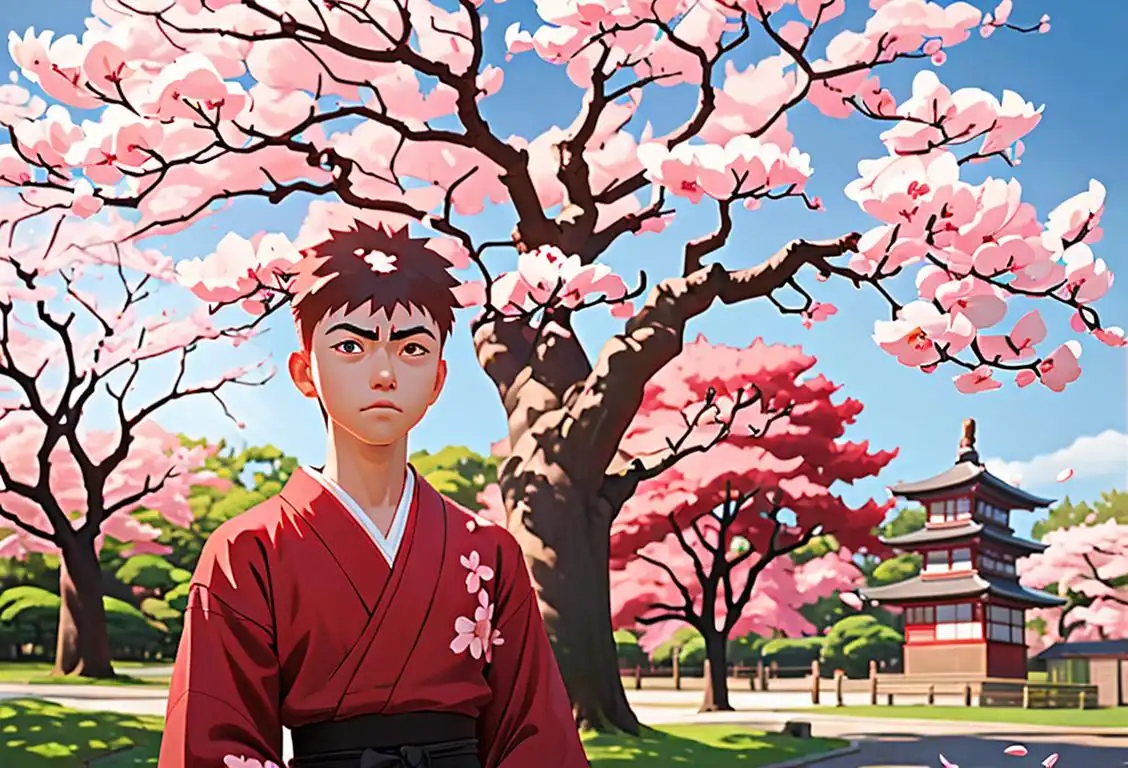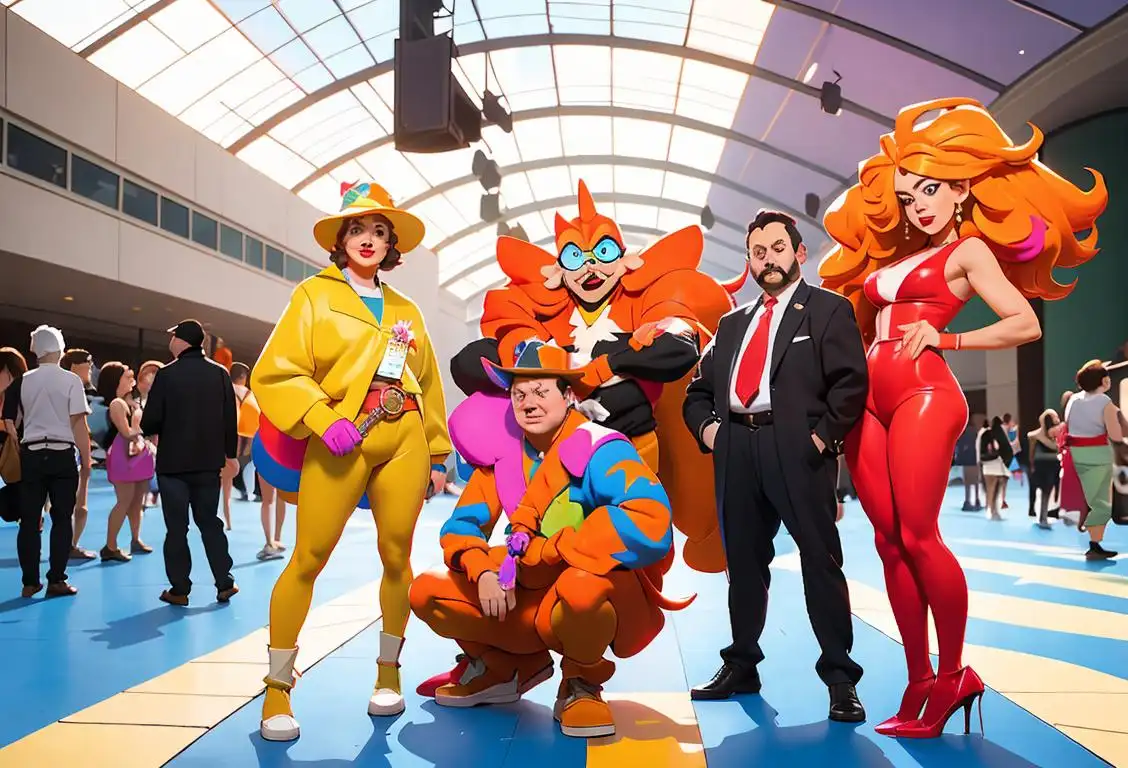National Catgirl Day
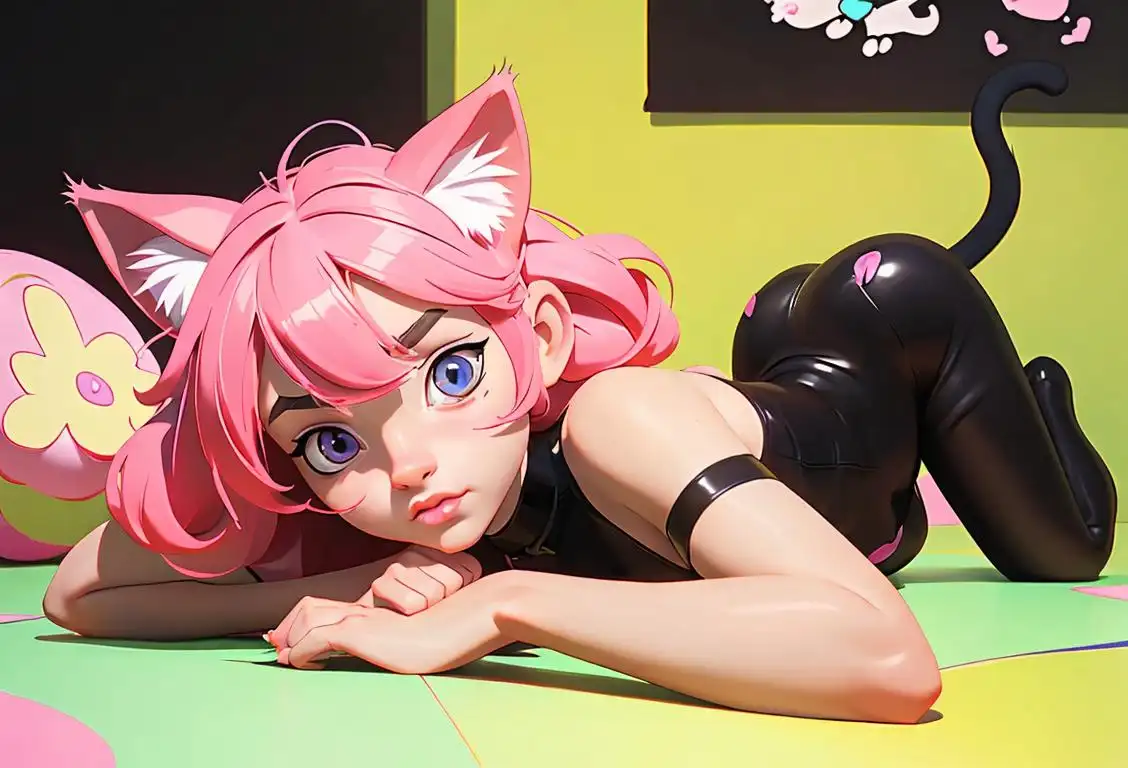
Attention all cat and anime lovers, get ready to celebrate National Catgirl Day! This purr-fect holiday is a day dedicated to those adorable feline-human hybrids, the catgirls. Get ready to embrace your inner otaku and dive into the whimsical world of cosplay and kawaii. Whether you're a seasoned catgirl aficionado or just curious about why this day exists, we've got all the meow-nificent details for you!
When is Catgirl Day?
It's national catgirl day on the 29th February.
The Internet History of National Catgirl Day
Where did National Catgirl Day originate from? Well, like many internet-driven holidays, its exact origins are a bit mysterious. It seems to have emerged from the depths of forums and imageboards, where catgirls have long been a beloved subject of discussion and fanart.
As you may know, catgirls are a popular character archetype in Japanese manga, anime, and video games. These captivating creatures possess both feline and human traits, often sporting cute cat ears, a tail, and a charmingly playful personality.
On February 29th, 2020, National Catgirl Day received quite a buzz online, with fans sharing their favorite catgirl images, cosplay creations, and even catgirl-inspired artwork.
While some people celebrate this day by embodying their favorite catgirl characters through cosplay or fanart, others simply appreciate the aesthetic allure of these fantastical beings.
Fun Ways to Celebrate National Catgirl Day
Wondering how to make the most of National Catgirl Day? Don't worry, we've got you covered with some delightfully whimsical and, most importantly, catgirl-approved ideas:
- Dress Up as Your Favorite Catgirl: Embrace the opportunity to channel your inner feline charm by donning a catgirl-inspired ensemble. Whether it's a full cosplay outfit or just some cute cat ears, let your inner neko shine!
- Binge-Watch Anime: Spend the day immersing yourself in the world of catgirls with a marathon of your favorite anime series featuring these adorable characters. Grab some popcorn, curl up on the couch, and enjoy the adventures of magical catgirls!
- Create Catgirl-Inspired Art: Whether you're a talented artist or just a fan of doodling, use this day as an excuse to unleash your creativity and draw your own catgirl masterpiece. Get inspired by the cute and whimsical nature of these characters!
- Support Catgirl-Themed Charities: Use the occasion to give back to furry little friends in need. Donate to a cat shelter or contribute to an animal welfare organization. After all, catgirls and real cats both deserve love and care!
Did You Know?
Did you know that catgirls have been referenced in internet culture since the early 2000s? They quickly gained popularity as an endearing and fan-favorite trope, captivating the hearts of many online communities. Since then, catgirls have become an iconic symbol of the convergence between the worlds of anime, cosplay, and internet subcultures.
History behind the term 'Catgirl'
1961
The Birth of Manga
Manga, the Japanese comic book art form, gained popularity during the 1960s. Offering a unique blend of expressive storytelling and captivating visuals, manga became a significant part of Japanese culture, gradually influencing various aspects of entertainment and fashion.
1960s
The rise of catgirls in manga and anime.
In the 1960s, the term 'catgirl' found its origins in Japanese manga and anime. The concept refers to female characters who possess elements of both human and cat characteristics. These characters are often depicted with cat ears, a cat tail, and sometimes even cat-like abilities. Catgirls quickly gained popularity among fans of manga and anime, captivating audiences with their unique charm and attractive appearance.
1970
Birth of the Catgirl Concept
In the early 1970s, the term 'catgirl' emerged as a popular concept in Japanese manga and anime. It refers to a female fictional character who possesses feline characteristics such as cat ears, a tail, and often exhibits catlike behavior. This unique blend of human and feline traits fascinated audiences and quickly gained popularity in Japan.
1990
Rise of Catgirls in Pop Culture
During the 1990s, catgirls started appearing in various forms of pop culture, including both manga and anime. One notable example is the character Shampoo from the manga and anime series 'Ranma 1/2', who introduced catgirls to a broader international audience. This increased exposure helped catgirls become synonymous with the kawaii (cute) culture of Japan.
1980s
The Rise of Nekomimi
During the 1980s, the concept of Nekomimi emerged in Japan. Nekomimi, meaning 'cat ears' in Japanese, refers to the distinctive feature of characters wearing cat ears on their head. This trend initially gained popularity in anime and manga, laying the foundation for the development of catgirl characters.
1978
Major catgirl appearance in 'Cutie Honey'.
In 1978, the iconic manga and anime series 'Cutie Honey' featured one of the most influential catgirl characters named Honey Kisaragi. Honey had the ability to transform into different personas, including one named 'Cutie Cat.' This character played a significant role in popularizing the image of catgirls in Japanese pop culture, solidifying their place as beloved and admired characters.
2000
Catgirls Enter Internet Subculture
With the rise of the internet and online communities, catgirls gained a significant presence in online subcultures and fandoms. Fans started creating and sharing their own catgirl-inspired artwork, stories, and cosplays, leading to the widespread adoption of catgirls as symbols of the anime and manga fandom. The term 'catgirl' became firmly established in the lexicon of otaku culture.
1990
The Introduction of Catgirls
In the 1990s, catgirls made their debut as prominent characters in anime and manga. Catgirls are anthropomorphic female characters with feline traits such as cat ears, tails, or even complete cat-like appearances. They became a beloved archetype in Japanese pop culture, capturing the imagination of fans worldwide.
1990s
Catgirls enter mainstream anime.
During the 1990s, catgirls became increasingly prominent in mainstream anime series. Shows like 'Tenchi Muyo!' and 'Sailor Moon' introduced popular catgirl characters such as Ryoko and Luna, respectively. The portrayal of catgirls in these widely watched anime broadened their appeal, captivating audiences worldwide and further establishing catgirls as a beloved trope within the genre.
2002
The Moe Phenomenon
Around 2002, the 'moe' phenomenon started to gain prominence in anime and manga. Moe refers to the feeling of affection or adoration towards cute and innocent characters. Catgirls became a hallmark of the moe aesthetic, amplifying their popularity and ensuring their continued presence in the industry.
2002
The emergence of 'nekomimi' culture.
In 2002, the term 'nekomimi,' meaning 'cat ears' in Japanese, gained popularity as a subculture within manga, anime, and gaming fandom. Nekomimi refers to the fashion trend and fascination with wearing or depicting cat ears, often coupled with other cat-like features such as tails and paws. This trend extended beyond fictional characters, leading to the creation of cat ear headbands and accessories for enthusiasts to express their love for the catgirl aesthetic.
2010
Catgirls in Gaming and Cosplay
In the 2010s, catgirls became prominent in video games, especially within the realm of Japanese role-playing games (JRPGs). Numerous games included catgirl characters, allowing players to embrace the fantasy of these hybrid creatures. Catgirls also found their way into the world of cosplay, with many enthusiasts replicating the iconic catgirl look at conventions and events across the globe.
Present
Continuing Popularity and Cultural Impact
In the present day, catgirls remain an enduring and beloved concept within the realm of anime, manga, gaming, and cosplay. They continue to captivate audiences with their charm and playfulness, representing a fusion of human and feline qualities. The term 'catgirl' has now permeated popular culture as a symbol of kawaii aesthetics, creativity, and the vibrant world of fandom.
Present
Catgirls in Pop Culture
Catgirls have found a place not only in anime and manga but also in various other forms of media such as video games, cosplay, and internet subcultures. They have become iconic representations of the fusion between human and feline characteristics, leaving a lasting impact on contemporary popular culture.
Present
Global recognition and cosplay.
In the present day, catgirls continue to captivate fans worldwide. The term 'catgirl' has transcended its origins in Japanese media and has become recognized and embraced by fans globally. Catgirl cosplay is a popular choice in conventions and events, with enthusiasts showcasing their creativity and love for these feline-inspired characters. The charm and allure of catgirls persist, leaving an indelible mark on the world of manga, anime, and cosplay.
Did you know?
Did you know that catgirls have been referenced in internet culture since the early 2000s? They quickly gained popularity as an endearing and fan-favorite trope, captivating the hearts of many online communities. Since then, catgirls have become an iconic symbol of the convergence between the worlds of anime, cosplay, and internet subcultures.Tagged
fun cute anime cosplayFirst identified
29th February 2020Most mentioned on
29th February 2020Total mentions
4Other days
Catgirl Day
Cat Girl Day
Dabi Day
Naruto Day
Jojo Day
Kiggy Day
Touhou Girl Day
Cute Puppy Day
Shirou Day
Convention Kicks Off Day
